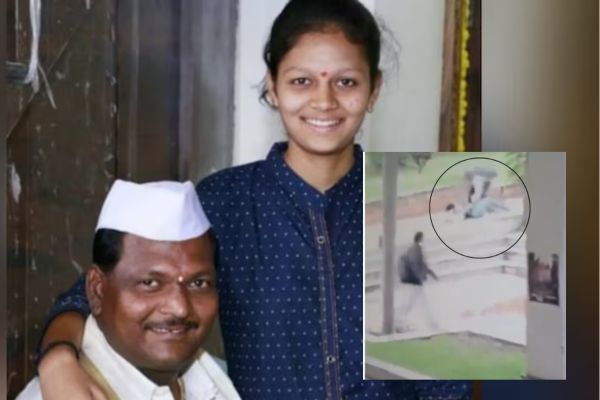India News
Can India Ignore its Caste Realities While Relaxing Labour Laws?

It was the “freedom of contract” which had ruined the concept of parliamentary democracy, Dr BR Ambedkar said in 1943. “Parliamentary democracy took no notice of economic inequalities and did not care to examine the result of freedom of contract on the parties to the contract should they happen to be unequal. It did not mind if the freedom of contract gave the strong the opportunity to defraud the weak,” he said.
The Dalit icon’s words hold increased relevance today, as various Indian states dilute the very labour laws he fought so hard for, during a worldwide pandemic.
Uttar Pradesh had previously suspended all but four labour laws. It revoked the order later, after a notice by the Allahabad High Court.
But other states were quick to step in with labour law relaxations of their own: mandating longer working hours, lax or no government inspections, and dilution of unions, among other things. One of the reasons being put forth for these moves is attracting more investment by increasing labour flexibility.
This comes at a time when India is witnessing a spiralling migrant crisis. Visuals of hungry, poor, and disabled workers walking thousands of kilometres to get to their homes amid the Covid-19 lockdown are now commonplace, and a large section of them belong to marginalised communities.
According to Suraj Yengde, a Dalit scholar with the Harvard University and author of ‘Caste Matters’, of the 395 million intrastate migrants in India, approximately 62 million are Dalits and 31 million are Adivasis. “Can you imagine that?” he says.
“People ask why they (migrants) are walking? That’s because they are forced to this exhaustion,” he says, explaining that migrants often walk kms daily to their work site, subject to difficult circumstances.
“On their return, they face diluted or suspended labour laws,” says Aruna Roy, co-founder of the Mazdoor Kisan Shakti Sangathan (MKSS) and president of the National Federation of Indian Women.
“Oppressed already both by class and caste, discrimination against the migrant labour, daily wage workers, factory and informal sector workers, will be further entrenched by downgrading their rights.”
Professor Khalid Khan from the Indian Institute of Dalit Studies says the share of casual labour who don’t enjoy any social and job security is the highest among scheduled tribes (STs) and scheduled castes (SCs).
“Casual labour makes up 21% of total workers overall but among these, 29% are STs, 39% SCs and 26% Muslims. A similar pattern is observed in states like UP, Haryana, Himachal Pradesh, and Madhya Pradesh: states where these changes have been announced,” he says.
He also points out that the share of regular salaried workers with long-term contracts and social security is already lower among underprivileged groups.
The proposed changes may further worsen their condition in terms of increased working hours, and provision of basic amenities, Prof Khan says.
‘No Better than Bonded Labour’: Deadlier Workplaces?
Among the states that have come up with labour law changes is Madhya Pradesh. The state’s ordinance has heavily relaxed inspections. According to a report by ET, there will be no factory inspections for three months, no inspections for companies with less than 50 workers. Third-party inspections will also be allowed.
Will relaxations of this nature result in deadlier workplaces for marginalised communities?
According to the All India Central Council of Trade Unions (AICCTU), the watering down of the inspection system has been going on for some time now, especially by the central government.
“They brought about a new ‘inspection scheme’ which curtailed surprise inspections,” AICCTU says. Without the security of tenure, workers become afraid to complain and inspections are important to ensure some level of compliance with the law, the labour body says.
The National Front of Indian Trade Unions (DHN) echoes this perspective. According to Dr Deepak Jaiswal, vice-chairman of the labour body, the relaxations will yield more authority to the employer.
“Weaker sections were already hit. But there was a forum, and with its death, everything will become one-sided,” Jaiswal says. “Jungle raaj ho jayega (it will be like the law of the jungle),” he warns.
And with occupational segregation that accompanies the labour of downtrodden communities, these hazards are ever-present.
According to a report by The Print, the union ministry of social justice and empowerment (MSJE) revealed in an answer to a question by Nationalist Congress Party (NCP) Rajya Sabha member Vandana Chavan, that 282 sanitation workers
“Even with stringent conditions for inspection, they sidestepped their obligations; without legal obligation, the worker will be no better than a bonded labourer,” Roy says.
She points out that the worker is further disadvantaged by entrenched social discrimination, including caste discrimination, and socio-economic realities.
“There is no doubt that the treatment of the SC worker, who already feels the brunt of job and wage insecurity, will worsen when her or his rights and protections are taken away,” says Roy.
MLA Jignesh Mevani from the Vadgam constituency of Gujarat affirms that “oppressed castes” will be the biggest sufferers of these changes. Workers are already facing hunger, discrimination, as they walk with blisters on their feet, the legislator says.
“Now they have legalised 12 hours of work. The workers may even be made to work for 14 hours. If there is violence in a private factory or establishment, how will we get to know? These things hardly come out,” he says.
Yengde says when industrial accidents happen due to oversights and relaxed inspections, ex-gratia payments become a way for the state to assuage those affected and tone down legal reproach. “Their (authorities’) family members have not died,” he says.
‘It Will Strengthen the Caste System’
“The caste system is not merely a division of labour but also a division of labourer, as convincingly argued by Dr Ambedkar,” Prof Khan says.
He points out that while the caste system is justified on the ground of division of labour, the fundamental feature of institutions of caste is the restriction of choice of occupation. This is imposed based on circumstances at birth.
He sheds light on the concept of meritocracy and upward mobility in India: “In its ideal form meritocracy might ensure everyone gets an equal chance of getting into privileged occupations. But in a caste-ridden society like India, meritocracy cannot work.”
There are two reasons for it, he says. First, that caste-based networks play an important role in getting jobs which favour a candidate from a privileged background more. Second, access to education in general and the quality of education is highly unequal.
In the context of such labour law changes, AICCTU points out that by hitting at the wages earned by workers and restricting the same, any possibility of upward mobility is curtailed.
Upward mobility is defined as the capacity or facility for rising to a higher social or economic position. However, in India, the shackles of caste often prevent marginalised communities from rising up the ladder.
“By keeping workers in conditions where they are unable to earn adequately, and through a steady process of privatisation of all basic services such as education, it becomes more difficult for even future generations to come out of the hereditary occupation,” the labour body says.
Yendge points out that, within the workforce, marginalised communities are often not taught other skills, as that would result in their empowerment.
According to Roy, a shocking 98% of safai karamcharis
“Other work that is typically done by SCs or STs such as sweeping, garbage collection, cleaning, factory work, etc, is also devalued,” Roy says.
Mevani is of the opinion that if a pro-people, pro-worker socialist economy is favoured, then Dalits would not be the only ones to carry out sanitation jobs. There would be professionalisation of different works.
But if more exploitative, capitalist tendencies are unleashed by the state, he says, then the jobs which certain sections have been historically subjected to would continue, thus strengthening caste stratification.
“Most Dalits, tribals, and OBCs are landless labourers. So when both the big farmers, and the small and marginal farmers suffer due to a failing economy, it is the Dalits and tribals to more brutalities and economic exploitation,” he explains.
“It will strengthen the caste system,” he warns.
Professor Rajendra Prasad Mamgain, from the Giri Institute of Development Studies, who specialises in labour economics, says that his work on recruitment processes shows that even while entering into the formal labour market, one has to have a social network.
“Even when you are coming to the city, you need a social network. And not everyone can migrate to the cities. With informalisation, the insecurity of labour is increased,” he says.
According to him, these labour relaxations will dampen the morale of workers. “If the employer is heavy on you, you cannot raise your voice.”
This, Prof Mamgain says, will result in workers switching more jobs until they find a humane employer, who will provide proper compensation/social security. And it will limit the mobility of occupations for SCs and STs.
Roy underscores the current situation, and feels that it should teach us a lesson: “The economic distress caused by the Covid-19 lockdown should show us that all work has value, and all workers should be treated with dignity, given decent wages as well as livelihood and social security.”
But Will this Even Yield the Desired Results?
Disaster capitalism. This is what Prof Mamgain says Indian states are carrying out, by relaxing labour laws.
The term was popularised by a 2007 book, ‘The Shock Doctrine: The Rise of Disaster Capitalism’, written by Canadian author and social activist Naomi Klein. The theory states that disasters (such as pandemics) provide perfect conditions for governments to carry out questionable policies, while citizens are too distracted to have a proper response to them.
Meanwhile, criticism grows. The International Labour Organisation, after previously condemning India’s labour law changes, has now urged Prime Minister Narendra Modi to send a clear message to the central and state governments to uphold India’s international commitments (conventions based on labour laws) and engage in social dialogue.
The debate deepens, while one question becomes pertinent: is all this even worth it?
Prof Mamgain is of the opinion that a healthy and virtuous cycle of economic development cannot be created until conditions for effective demand, and better purchasing power are, too.
“Whatever they (states) are doing, it will have a great retrogressive effect on labour. They cannot demand raise in wages. The moment they do so, they will be made to sit down,” he says.
What will that finally do? As their right to demand better wages decreases, and competition culls their daily due, with inflationary pressure, their net income will go down, and so will their living standards, he explains.
Prof Mamgain mentions that there are two types of capital—good, and bad. “There are Japanese enterprises that are delegating work in areas of Gurugram and Manesar. They respect labour laws. India should demonstrate that model, where the worker is not a mere servant but the owner also.”
Coercive measures can be employed to increase the profit, but it will not be good for the long run. “They (employers/industries) will learn from this crisis,” he says.
The professor also underscores the complexity of Indian labour laws. But the industry had learned to live with them, he says.
According to a study conducted by him, “law and order problem” was one of the biggest issues industries faced amid capital generation. Labour laws, Prof Mamgain says, were much farther up the list.
This takes one back to NFITU’s warning about a “law of the jungle” situation that could prevail due to these changes, as aggression rises over unmet demands and decreased social security.
It is also not certain these labour law relaxations, which many experts deem a blight on human rights, would help achieve the purpose.
According to a report published by the Firstpost, there are studies that document the lack of a link between protective labour law regimes and stunted economic growth.
The report cites a 2017 study, which observed the performance in certain states like Rajasthan, Uttar Pradesh, and Andhra Pradesh, after employer-friendly relaxations were adopted, from 2014-2015.
There were relaxations in Chapter VB of the Industrial Disputes Act, 1950, the Contract Labour Act, 1970, and the Factories Act, 1948, the article states. However, no impact from these changes was seen on growth, employment, or investment of capital.
Mevani says that India should feed its labour force more; make it healthy and strong. “It will benefit the industries more than this,” he argues.
He also links an increased purchasing power to more production and manufacturing. “There should be a demand from the bottom. Once purchasing power increases, people will go out and buy more industrial output,” the Vadgam MLA says.
Roy says that an exploited, exhausted, sickly and impoverished workforce, receiving a pittance for a 12-hour work day, cannot continue to be productive.
“Workers are human beings with an equal claim to constitutional and fundamental rights. This turnaround brings back the dark ages where the people who were powerless were mere fodder for the rich,” she argues.
She points out that Wipro founder Azim Premji elaborated in an article in ET on how the interests of employers and workers should be more aligned in this time of crisis.
He explained how the dilution and outright suspension of labour laws, without providing social security for the worker, will not increase economic productivity, she says.
“Rather, it is unethical, pits business and workers against one another, and will further create distress for the poor.”
https://pubstack.nw18.com/pubsync/fallback/api/videos/recommended?source=n18english&channels=5d95e6c378c2f2492e2148a2&categories=5d95e6d7340a9e4981b2e10a&query=Can,India,Ignore,its,Caste,Realities,While,Relaxing,Labour,Laws?,coronavirus,labour,laws,&publish_min=2021-05-25T00:53:06.000Z&publish_max=2021-05-27T00:53:06.000Z&sort_by=date-relevance&order_by=0&limit=2
(Note: This is a Article Automatically Generated Through Syndication, Here is The Original Source
Viral
Video of Isha Arora, Saharanpur Polling Agent Takes the Internet By Storm

A video is currently going viral on the internet, showing Saharanpur polling agent Isha Arora doing the rounds in the Gangoh assembly constituency during the Saharanpur Lok Sabha elections. Since then, netizens have been going gaga over her charm and personality.
Meanwhile, many are curious to know more about her. A wide range of memes and reels are also being shared on Twitter and Instagram.
According to social media, Isha Arora is a State Bank of India (SBI) employee, currently employed on polling duty for the Saharanpur Lok Sabha Election 2024 in Madari village of the Gangoh assembly constituency.
Video of Isha Arora dominates the internet
There she serves as the first polling officer at Garhi village’s polling booth. It got to a point that national news agencies were trying to get her on camera.
Many of Isha Arora’s photos and videos are circulating on various social media platforms, generating millions of clicks and views. While talking to ANI, she stated:
“I think that if you get any duty, you should be punctual and that’s the reason I have assumed my duty on time. Every man and woman should be punctual to let the functioning be smooth.”
On being asked about her election duties, she said:
“I’ll say that people should be punctual and they are, otherwise conducting such big elections wouldn’t have been possible. I didn’t get time to watch it (comments) in the video. It’s election time and it was my duty to come on time hence I was busy. It goes viral due to my punctuality and devotion…”
Back in 2019, during the Lok Sabha elections, a clerk from the Public Works Department in Lucknow, Reena Dwivedi, gained national media attention because of her beauty. Her pictures in a yellow saree on duty went viral on various social media platforms.
Also Read: Hareem Shah Addresses Trolls After Her MMS Video Leak
India News
Raj Kundra ED Case Explained: Properties Worth Rs 98 Cr Seized

Raj Kundra, the famous businessman and husband of Bollywood actress Shilpa Shetty, has had properties worth Rs. 98 crore seized by the Enforcement Directorate.
The ED has also seized Shilpa Shetty’s Juhu flat. The Mumbai Zonal Office has seized movable and immovable properties worth Rs. 97.79 crore belonging to Raj Kundra (also known as Ripu Sudan Kundra) under the Prevention of Money Laundering Act (PMLA), 2002, as reported by The Economic Times.
The seized properties include equity shares in Raj Kundra’s name, a residential bungalow situated in Pune, and a flat in Juhu under Shilpa Shetty’s name.
The investigation was initiated by the ED based on multiple FIRs registered by the Delhi Police and Maharashtra Police.
The FIRs were registered against several MLM agents: Mahender Bhardwaj, Simpy Bhardwaj, Vivek Bhardwaj, Ajay Bhardwaj, the late Amit Bhardwaj, and M/s Variable Tech Pte Ltd.
According to News18, allegations prevail that they collected funds worth Rs. 6,600 crore in 2017 in the form of Bitcoins. Moreover, they falsely promised a 10 percent return per month in the form of Bitcoins.
Investors were led to believe they would get higher returns on crypto assets, and the Bitcoins were purportedly taken to be used for Bitcoin mining in Ukraine. However, the promoters cheated the investors.
The promoters concealed the “ill-gotten Bitcoins in obscure online wallets.”
Investigation on Raj Kundra and Other Suspects
The ED investigation into Raj Kundra revealed that he received 285 Bitcoins from Amit Bhardwaj, the mastermind.
As the deal didn’t materialize, Raj Kundra still possesses 285 Bitcoins, worth Rs. 150 crore at present value, as per Mint.
In this case, Nikhil Mahajan was apprehended on January 1, 2023, Nitin Gaur on December 29, 2023, and Simpy Bhardwaj on December 17, 2023. Currently, all three of them are in judicial custody.
However, the masterminds, Mahendra Bhardwaj and Ajay Bhardwaj, are yet to be caught.
Further investigation in the case is under progress.
Also Read: Petition Against Cody Roberts Demands Felony Charges For Killing Wolf
India News
Karnataka Congress Leader’s Daughter Neha Murdered by Fayaz on College Campus, Suspected Arrested

Neha, 23, was the daughter of Niranjan Hiremath, a Congress Corporator who was brutally stabbed to death. She was murdered inside her college campus in Hubballi, Karnataka by her former classmate.
The accused has been identified as 23-year-old Fayaz Khondunai, who is currently in judicial custody for 14 days.
Neha was studying at BVB College (KLE Technological University) and was in her first year of MCA (Masters of Computer Applications).
This incident was captured by the CCTV cameras installed on the college campus. The footage shows how Neha was repeatedly stabbed by Fayaz with a knife.
The horrific incident took place at 4:30 pm when the victim completed her first semester exams and was returning.
The accused, Fayaz, belongs to Savadatti taluk in Belagavi district. According to reports by Opindia, Neha and Fayaz were friends during their bachelor days.
However, both Neha’s parents and the college management opposed their friendship. Thus, Neha distanced herself from Fayaz.
Police consider that this stabbing incident occurred due to their strained relationship.
For this reason, Neha was asked by her parents not to even attend college.
What Happened To Neha?
Fayaz confronted Neha when she came to appear for first-semester MCA exams. This escalated into a physical brawl in which Fayaz punched and then stabbed her multiple times. Then he left the scene.
However, some students tried their best and handed the culprit to Vidyanagar police.
Neha was immediately sent to the Karnataka Institute of Medical Sciences (KIMS) Hospital by the students and college authorities. However, she was pronounced dead upon arrival.
Also Read: Did Mahua Moitra say “Sex” or “Eggs” In The Viral Video? The Person Who Asked Her Clarified
As per reports by OneIndia, Fayaz had been keeping track of Neha’s whereabouts ever since she rejected his proposal.

 Photos1 week ago
Photos1 week ago65+ Georgina Rodriguez Hot, Sexy, Naked Pics: Top Bikini Photos of Cristiano Ronaldo’s Girlfriend

 Photos1 week ago
Photos1 week ago65+ Top Anveshi Jain Hot and Sexy Pictures: Bikini Photos of ‘Gandii Baat’ Actress

 Entertainment3 days ago
Entertainment3 days ago8 Sapna Sharma Hot Web Series for 2024 (18+ Only)

 Web Series6 days ago
Web Series6 days ago15 Hot Sharanya Jit Kaur web series to binge-watch online

 Photos1 week ago
Photos1 week ago95+ Monalisa Hot, Sexy, and Bikini Photos of Bhojpuri Actress ‘Antara Biswas’

 Web Series4 days ago
Web Series4 days ago6 Ankita Singh Web Series, Age, Net Worth, Husband, and Instagram Posts

 Entertainment7 days ago
Entertainment7 days agoPriya Mishra Web Series Names List (18+ Age Only)

 Entertainment18 hours ago
Entertainment18 hours ago8 Best Sapna Sappu Web Series to Watch This Weekend














